Many businesses today are working to meet their environmental, social, and governance (ESG) goals. In this effort, it is crucial to involve stakeholders, people interested in the business such as employees, investors, customers, suppliers, and local communities. These groups now expect more transparency and responsibility from businesses. Engaging with them isn’t just about following rules, it focuses on building trust, addressing important issues, and creating long-term plans that consider everyone’s needs and goals.
At Ikano Insight, we assist companies through every stage of this engagement process. We conduct double materiality assessments and evaluate ESG technology to ensure that sustainability reporting is relevant, inclusive, and driven by strong data.
Identifying and map key stakeholders
The first step to effective ESG stakeholder engagement is the identification of internal and external key stakeholders. Internally, it might be the business management, compliance managers, HR, operations, and sustainability departments. Externally, it might be roles such as, suppliers, regulators, investors, NGOs, local government, and impacted communities.
Once you identify key stakeholders, the next step is to categorise them according to the level of influence, interest, and proximity to ESG-related effects. At this point, stakeholder mapping tools like power/interest grids or influence/impact matrices are useful. They can allow organisations to visualise principal stakeholders and sequence their involvement based on prioritisation.
For ESG, prioritisation means identification of stakeholders most impacted by, or most impacting, material sustainability issues. This is particularly critical while transitioning to reporting standards such as the Corporate Sustainability Reporting Directive (CSRD), GRI, or SASB, which require evidence-based stakeholder priority insights.
Ask us about support for your double materiality assessment
If you think you need help implementing double materiality assessments, get in touch on the form here, and we’ll get straight back to you to see how we can help:
Selecting the right engagement methods
Once all the stakeholders are mapped and categorised, choosing the appropriate stakeholder engagement methods is vital to making sure their voices are genuinely heard.
Ikano Insight’s engagement workshops aim to provoke meaningful contributions from a variety of stakeholder groups. The workshops can be held in-person or remotely, depending on the participants’ geographical location and availability. Each workshop is designed to address double materiality by looking at how sustainability concerns affect the business as well as how it influences society and the environment.
Workshops frequently involve stakeholder surveys, breakout discussions, and scenario-based activities. When constructing these events, we take into account cultural context, accessibility needs, and digital literacy to ensure that all participants can interact comfortably and productively.
In addition to workshops, interviews, online surveys, and focus groups are also used to gather insights. The key is to choose a mix of methods that align with stakeholder preferences, communication styles, and the nature of the topics being explored.
Leveraging data & technology for stakeholder input
With organisations increasingly seeking scalable, data-driven insights, technology plays a crucial role in enhancing the stakeholder engagement process. Advanced tools can help organisations track, analyse, and integrate stakeholder feedback more efficiently and with greater transparency.
Our ESG Process & Technology Scoping service helps organisations select and implement platforms that support stakeholder engagement at scale. From real-time dashboards to interactive stakeholder mapping frameworks, these systems streamline the integration of stakeholder feedback into sustainability reporting frameworks.
Such technologies can:
- Facilitate continuous engagement rather than one-off events
- Highlight emerging trends and material concerns through feedback analytics
- Support version control and audit trails for compliance purposes
- Integrate input directly into ESG metrics, goals, and KPIs
This digital approach not only boosts efficiency but also enhances inclusivity, enabling engagement with geographically dispersed or time-constrained stakeholders.
Ensuring transparent & two-way communication
Transparency is the bedrock of successful business, let alone stakeholder engagement. Organisations must be completely upfront about their goals, processes, and expectations when inviting participation. Clearly articulating why stakeholders are being consulted, and how their input will shape business sustainability efforts, builds trust and minimises any resistance.
It’s also important to anticipate and address potential concerns or scepticism constructively. Some stakeholders may question the sincerity of engagement efforts or doubt the organisation’s ability to act on feedback. Addressing these concerns properly, involves demonstrating past examples of action taken based on stakeholder input and providing regular updates on progress.
Two-way communication is about more than just receiving good feedback, it’s about actively listening and responding. This can be achieved through:
- Regular follow-up emails and newsletters
- Publicly available summaries of stakeholder consultations
- Feedback loops in workshops or digital platforms
- Recognition and acknowledgement of stakeholder contributions
These techniques help to make sure that stakeholders feel heard and valued, encouraging ongoing dialogue and strengthening long-term relationships.
Why strong engagement leads to stronger reporting
Healthy stakeholder engagement will often result in more accurate, relevant, and actionable sustainability reporting. When stakeholders feel that they are meaningfully involved, they are far more likely to support the organisation’s sustainability initiatives and advocate for its long-term goals.
Moreover, regulators and ESG auditors increasingly assess the depth and quality of engagement as part of their evaluation of sustainability reports. Poor or fake engagement can lead to reputational risk, non-compliance, and misaligned sustainability strategies.
By embedding stakeholder input into Double Materiality Assessments, businesses can make sure that they are addressing issues that genuinely matter, not only from a regulatory standpoint but also in terms of real-world impact and risk.
The Ikano Insight advantage
At Ikano Insight, we provide tailored support for stakeholder engagement through our expert-led advisory services and ESG platform implementation. Whether it’s facilitating stakeholder workshops, conducting double materiality assessments, or guiding ESG process and technology adoption, our goal is to simplify and strengthen your sustainability reporting efforts.
Our approach combines data science, behavioural insight, and proven stakeholder engagement frameworks to deliver results that meet both compliance standards and stakeholder expectations. By leveraging our tools and experience, clients can uncover what truly matters, align ESG strategy with stakeholder priorities, and drive sustainable growth with confidence.
Engaging for impact
Effective stakeholder engagement is not a one-time activity, it’s an ongoing commitment to listening, learning, and acting. By identifying and prioritising stakeholders using healthy frameworks, selecting the right methods for meaningful dialogue, and leveraging technology for efficient, scalable input, organisations can create a strong foundation for credible sustainability reporting.
Transparent, two-way communication fosters trust and positions businesses as responsible and responsive entities. Ultimately, those who excel at stakeholder engagement will find themselves better equipped to navigate the evolving ESG landscape, and better prepared to deliver long-term value for people, planet, and profit.
Written by Peter Jones

Head of Sustainability
Skilled in sustainability strategy and analytics, Peter is passionate about steering organisations toward a sustainable future, leveraging strategic vision and extensive experience for global betterment and bottom-line success.



